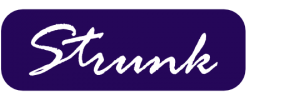The Consumer Financial Protection Bureau (CFPB) published guidance on October 26, 2022, stating that “surprise overdraft fees” and “returned deposited item fees” generally constitute “unfair practices” in violation of the federal Consumer Financial Protection Act when consumers are unable to avoid them. In its analysis, the CFPB underlined that an act or practice is illegally unfair when it significantly harms consumers or is likely to do so, harm that consumers cannot reasonably be expected to avoid, and (ii) harm that is not outweighed by advantages to consumers or to competition.
The guidance from the Consumer Financial Protection Bureau (CFPB) (Circular 2022-06) focuses on “unanticipated” overdraft fees, or those resulting from activities that a consumer would not ordinarily anticipate an overdraft fee. The guidance focuses on debit card transactions in which the available amount appears to be sufficient when the consumer initiates the transaction but is insufficient when the transaction is settled, resulting in an overdraft fee. According to the guidance, consumers may readily check their available balance via mobile apps, the internet, ATMs, or their phone, so they shouldn’t fairly anticipate paying an overdraft fee in this circumstance.
In addition, the guidance states a consumer is likely to reasonably expect that if a debit card transaction is authorized at the point of sale, he or she will not later incur an overdraft fee. The guidance notes that consumers cannot reasonably be expected to understand and account for delays between authorization and payment, nor can they control the methods by which a financial institution settles other transactions that could affect the imposition of overdraft fees. The guidance concludes that the injury from unanticipated overdraft fees likely is not outweighed by any countervailing benefits to consumers or to competition.
According to the CFPB’s guidance (Circular 2022-06), practices that charge consumers flat fees for all transactions, regardless of the specifics of the transaction or patterns on the account, are probably unjust. Since a depositor typically has no influence over whether a deposited check will be paid or not and has no reason to anticipate that a placed check will be returned, the guideline emphasizes that consumers are not reasonably able to avoid such costs.
According to the guidance, returned deposited item costs harm consumers significantly and are not likely to be offset by advantages to consumers or to competition. It’s crucial to remember that the guidance focuses on financial institution policies that broadly impose returned deposited item fees in situations where consumers are unaware that checks may be returned. The guidance states that policies with fines that are intended to deter consumer conduct, such as frequently depositing faulty checks from the same originator or depositing checks that are not signed, are not in violation of the rule.
The good news is neither of these issues should prohibit any FI from keeping their ODP program in place! However, action must be taken to avoid both of these specific instances.
The CFPB is not offering a resolution for either of these issues via disclosure. Nor are they providing a time frame within which to achieve compliance. In fact, they are saying that transaction processing rules are often complex so regardless of disclosure it isn’t reasonable for consumers to necessarily understand how the process works. So, the only resolution for ‘authorize positive, settle negative’ is to stop doing it if that is how your transactions are processed today. Sadly, the CFPB has not yet issued a Rule mandating core processors to add the necessary capability to prevent charging a fee for an item allowed on “good funds.” In addition, some core processors may postpone the creation of the module (or patch), which eliminates the regulatory risk, in the absence of such a regulatory mandate. This will still fall on the financial institution to put controls in place to prevent charging these fees.
The solution on the returned deposit item fee appears relatively simple – if you charge a returned deposit item fee today – stop. The CFPB does offer some guidance on certain circumstances where changing that fee may be reasonable – for example, if a depository institution only charges consumers a fee if they repeatedly deposit bad checks from the same originator, or only charges consumers a fee when checks are unsigned, those fees would likely be reasonably avoidable by the consumer. However, my take on that is it really isn’t worth trying to monitor the specific reasons the fee was charged in each instance. Far easier to just not charge the fee and be sure to avoid the regulatory criticism. Returned deposit item fees really don’t have anything to do with ODP so we’re not familiar with the instance of occurrence, but I assume these fees don’t add up to much for the typical community institution.
Strunk’s recommendations have continued to include clearer wording and open information regarding how fees are calculated. We have actively helped community banks and credit unions address the problems mentioned in the bureau’s advice throughout the years. Strunk often receive feedback from clients regarding issues raised during their examinations. Additionally, we stay in contact with the state and national banking associations’ legal counsel on topics related to overdraft protections to make sure we stay in front of any issues for our clients.


